Syria: yesterday, today, and tomorrow.
By BADER GEORGE QARMOUT
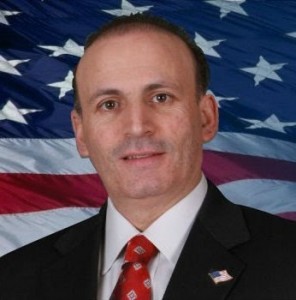 As the world contemplates what to do with Syria, I had the opportunity to speak to Shadi (last name withheld) and his mother and I asked them about what life was like in Syria before the Arab Spring, as well as other things. Shadi and his mother now live in a small town in northern New Jersey. Both Shadi and his mother were living in the US and went to visit Syria before the outbreak of the uprising in that country. They wanted to return to the US but could not and thus were stuck in the land of their birth in the midst of a revolution for 2 and ½ years. Finally Shadi and his mother were able to escape from Syria and come back to New Jersey in June of this year to live with relatives. I sat down with Shadi and his mother for over four hours to discuss Syria in detail.
As the world contemplates what to do with Syria, I had the opportunity to speak to Shadi (last name withheld) and his mother and I asked them about what life was like in Syria before the Arab Spring, as well as other things. Shadi and his mother now live in a small town in northern New Jersey. Both Shadi and his mother were living in the US and went to visit Syria before the outbreak of the uprising in that country. They wanted to return to the US but could not and thus were stuck in the land of their birth in the midst of a revolution for 2 and ½ years. Finally Shadi and his mother were able to escape from Syria and come back to New Jersey in June of this year to live with relatives. I sat down with Shadi and his mother for over four hours to discuss Syria in detail.
I specifically asked what life was like in Syria before the revolution and how was the relationship between Muslims and Christians who make up 10% of the population? The answers I received were different than what you will hear in the mainstream media. Shadi and his mother, who are Christians, were insistent that Christians and Muslims got along without any conflict priory to the revolution. Christians though a minority, had equal access to all the rights and privilege of social, academic, political, and financial aspects of Syrian society. I was told of a Syria that was getting better and more modernized under the leadership of President Bashar al-Assad (Bashar-the-lion) as compared to his father’s stricter control. Bashar introduced or expanded private banking, private hospitalization, internet, cellphones and modern amenities to Syria. The Syrian government funds itself mostly from oil exports and has no personal income tax.
The catalyst of the Syrian revolution was in Daraa, in the southwest region of Syria near the Jordan border. A handful of teenagers were arrested for vandalism by Bashar-al-Assad’s cousin, Gen. Atef Najeeb. The teenagers were brutally beaten and tortured by Gen. Najeeb’s men because they spray painted anti Assad and anti-government graffiti. When family members and tribal leaders came to Gen. Najeeb to secure the release of the 15 teenagers, the General refused and disrespected the tribal leaders and sent them home without releasing the teenagers. The Sunni residents of Daraa reacted with protest and demonstrations. The overreaction by Gen. Najeeb was later apologized for by Bashar-al-Assad, but that was far too late, Syria was already on fire. The majority of the population of Daraa is Sunni as is over 60 percent of Syria, while Bashar-el-Assad is a member of a minority Shia subgroup called Alawites.
The revolution that started in Daraa and spread to many parts of Syria was helped by soldiers who flipped sides and joined the Freedom fighters. Shadi wanted to reiterate that initially the revolution was not about Sunni vs. Shia but rather about a population that felt the oppression and corruption of political domination of one party for 40 years.
It is interesting to note that the soldiers and commanders who did abandon Assad’s army are almost exclusively Sunni. Most of the alliances that have formed between Arab nations and Syria or the rebels are on a sectarian divide, Shiites with the Assad regime and Sunnis with the rebels.
When I asked Shadi about the Arab Spring and how likely is democracy to flourish in the Arab world, he said without hesitation “never, it will never happen!” When I pressed him as to why not, he said with clenched fist: “The Arabs only understand authority.”
The original make-up of the rebels for the first year was exclusively Syrians (Sunni) who wanted to rid the country of one party rule (Shia –Alawites rule). This would have been the ideal time for the United States or other nations to support the rebels. Shadi said that if Syria was to be democratic then anyone Shia, Sunni, or Christian could become president. Since Sunni make up 60% of the population it would make sense that they would dominate politics. When I asked Shadi, what he thought about the Sunnis regaining power and running the country, he said: “that would be fine, because Christians had a good life when Sunnis were in power and currently have a good life in Syria now that Shiites are in power.” This explains why Christians are staying out of the current conflict in Syria.
I asked if it was true that Al-Qaida (the terrorist group that took responsibility for many attacks and bombings, including the US attack of September 11, 2001) members were helping the rebels fight Assad’s army, to which Shadi and his mother both emphatically said “Yes, and many of them don’t even speak Arabic.” Why would these non-Syrians want to help the rebels? Shadi believes it is because they want to turn Syria towards extremism and strict Muslim law. Shadi predicts that the Syrian population would violently reject extremism.
The Rebels are happy to accept any help they can get to defeat Assad’s regime, but conflicts between the Syrian rebels and the non-Syrian fighters is deepening and turning violent. This matter is complicated by the fact that all the rebels, Syrian and non-Syrian are under one banner and call themselves freedom fighters. Matters are further complicated by the fact that many of the fighters are a group of 200 men being independently led with little centralization.
When I asked Shadi about President Obama’s plan to punish Bashar-el-Assad by bombing key military sites, Shadi believed that the time for the US to assist the freedom fighters was during the first year of the uprising and now it is too late. Now that the extremists and Al-Qaeda fighters have entered Syria, the struggle has changed and no longer resembles the original intent. Shadi and his mother spoke of brutality at the hands of the foreigners and the violence they unleashed at Syrians, Christians and moderate Muslims.
Shadi spoke of a Syria that has been devastated by the 2 ½ years of civil war. Many buildings and homes have been destroyed and Syria and its people are now worse off than compared to pre-revolution. When I asked Shadi about the use of chemical weapons, he believes that Assad’s army most likely did use them, but was not sure if it was with or without Assad’s orders. The same weapons in the hands of the Al-Qaeda infiltrated freedom fighter’s army will be even more threating to Syria, its people, and the civilized world.
China and Russia not only have economic benefits to maintain status quo in Syria but both have fought against Muslim extremist in their respective countries.
What did Shadi and his mother see as a solution to this conflict and what does the future look like for Syria? I was surprised that Shadi believed there is no solution to the current madness that Syria has spiral into. Shadi and his mother were both saddened and frightened by what is happening. The withholding of their last name was to protect the family members still in Syria. Shadi believed that if America was to attack Syria, it would only make matters worse and empower the extremists and Al-Qaeda. Shadi said to me, “I just don’t know why President Obama wants to empower the Muslim Brotherhood and Al-Qaeda in Syria, Egypt, Libya and elsewhere. The time for America’s involvement has passed. Currently there is no good outcome in Syria and if the rebels win and the extremists remain, then a violent rebellion between the extremists and local moderates will ensue. If Assad was empowered and remains and puts down the uprising, things will never be the same and will most likely start up again because the extremists who are now in the country will not just leave, but rather will resort to suicide bombings. The Al-Qaeda terrorists are here to kill and destroy not build.”

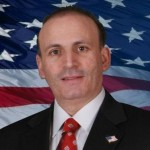
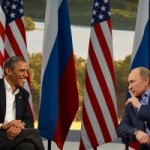

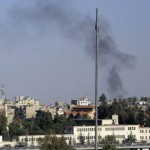

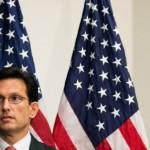
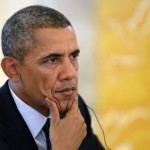
Well done, Bader. This article should have been posted at AmSpec or NRO where they need to wake the hell up.